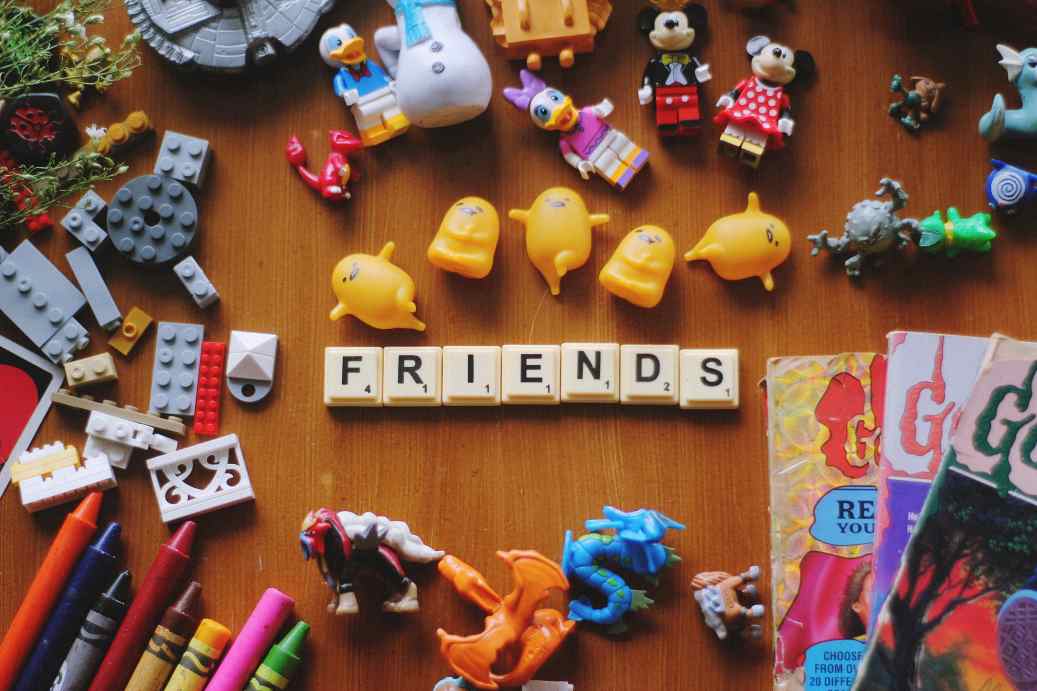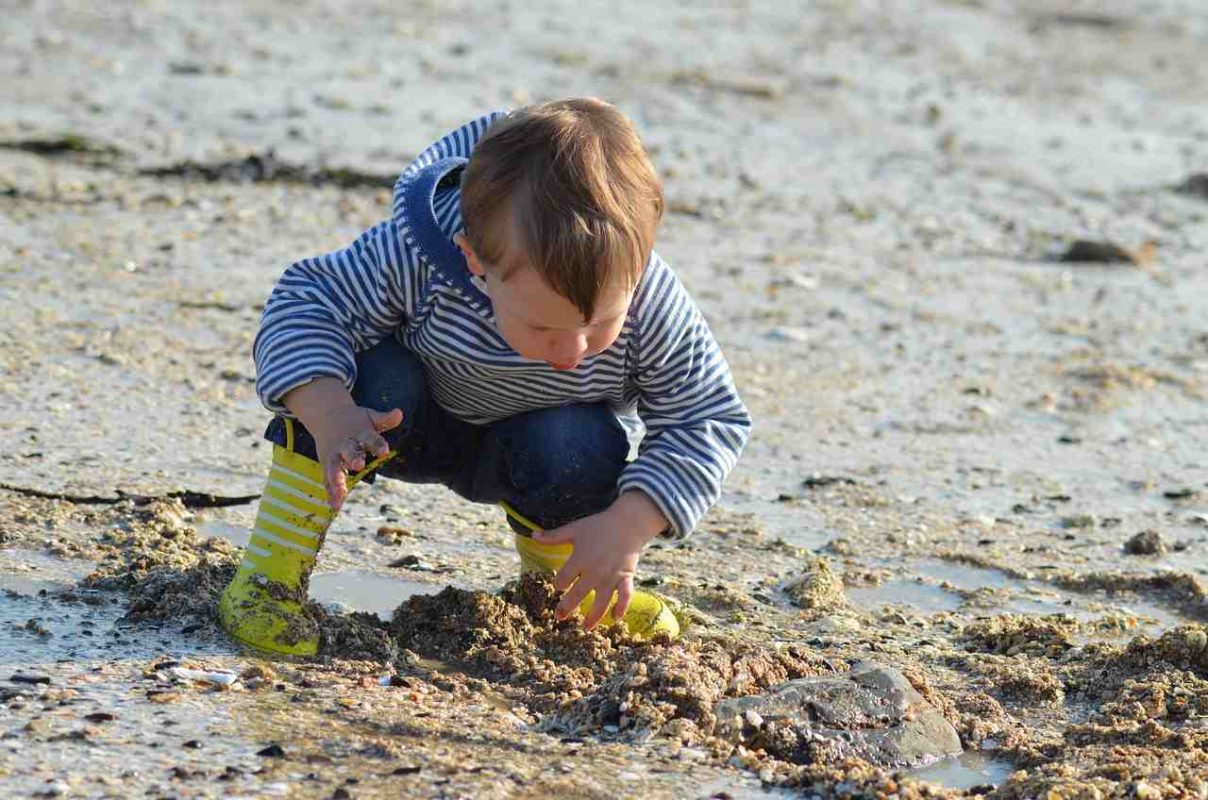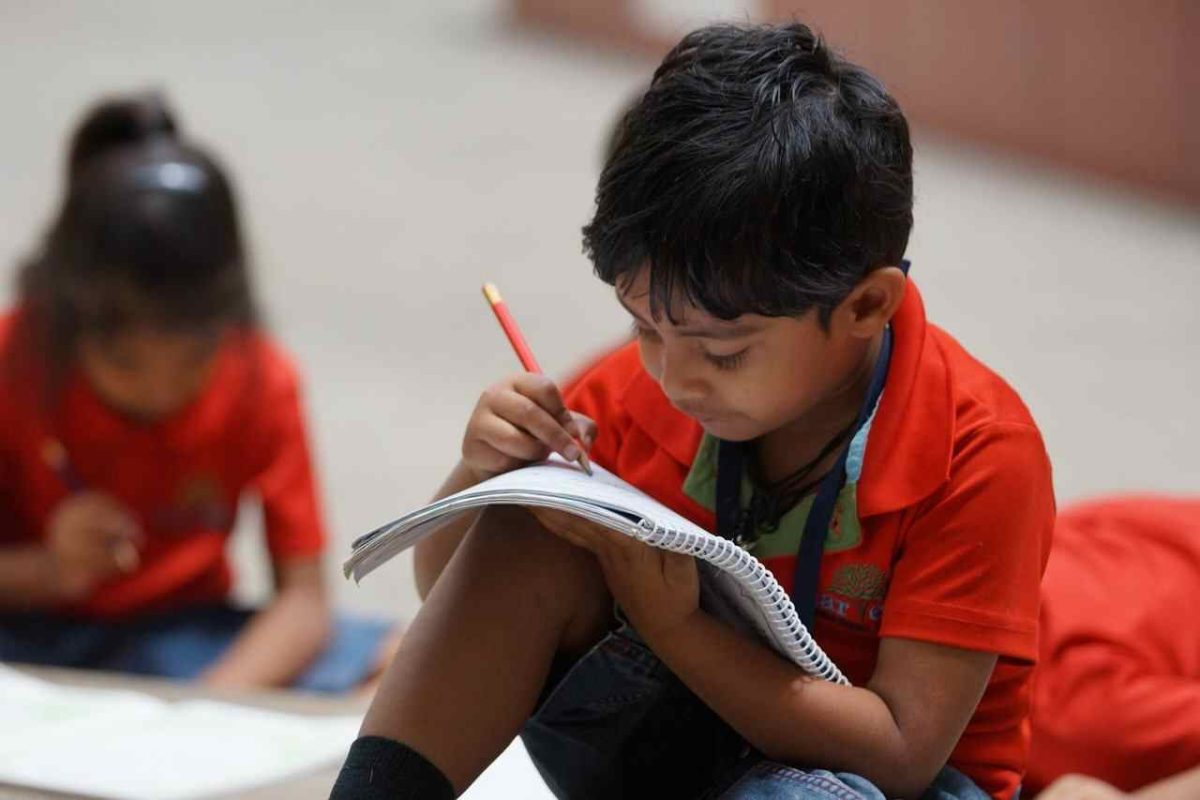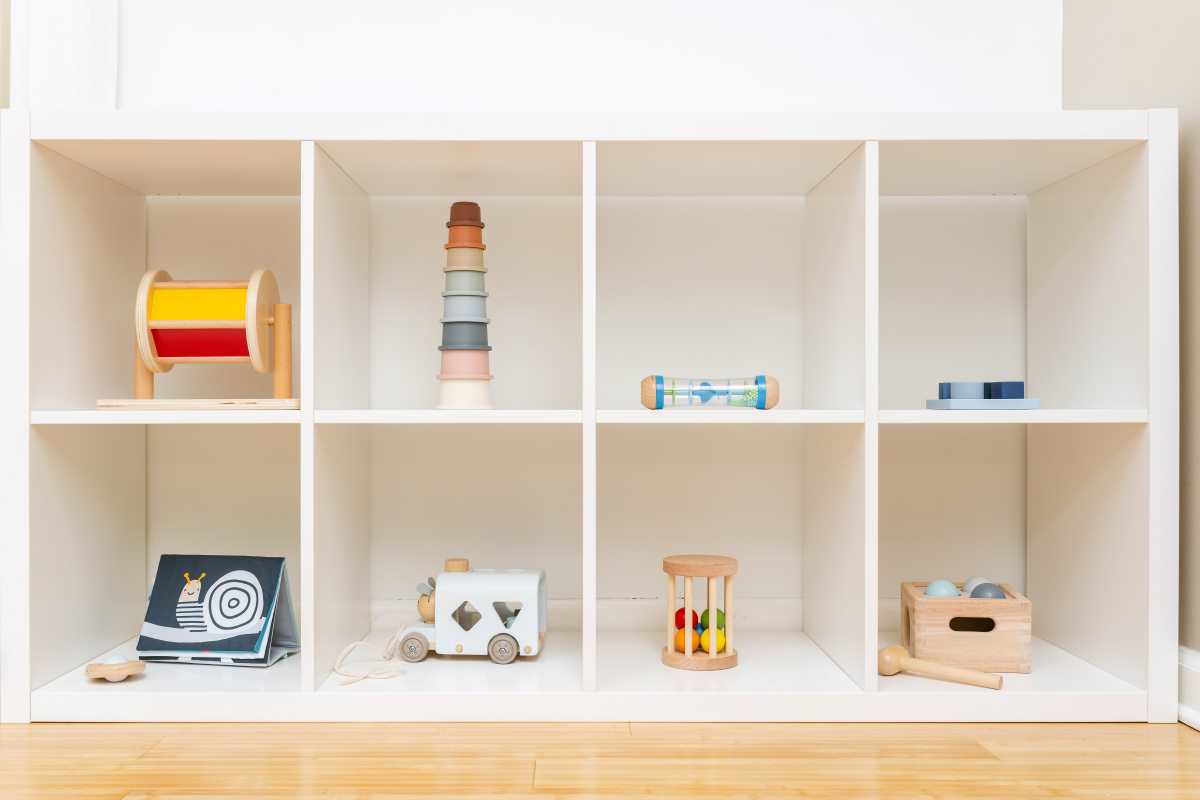Montessori education
Montessori for Toddlers: A Path to Holistic Learning
Montessori education focuses on nurturing a child’s natural desire to learn. The Montessori method encourages self-directed learning, independence, and respect for a child’s unique developmental needs. While Montessori schools serve children across ages, this approach is particularly impactful in the toddler years between 18 months and 3 years old. During this crucial developmental window, Montessori principles and materials provide an enriching environment that promotes holistic growth.
Table of Contents
Understanding Montessori Education
The Montessori method was founded in 1907 by Dr. Maria Montessori, one of the first female physicians in Italy. Through her work with children with learning disabilities, Dr. Montessori discovered that allowing children freedom within a thoughtfully prepared environment stimulated their self-motivation to learn.
Her scientific observations of children’s development led her to design specialized educational materials and open the first Casa dei Bambini (“Children’s House”) for young students in an apartment complex in Rome. The success of this first Children’s House quickly led to the establishment of Montessori schools worldwide.
There are over 22,000 Montessori schools globally today. Montessori education differs from traditional schooling with its emphasis on:
- Self-directed learning: Children choose activities that interest them and progress at their own pace.
- Multi-age classrooms: Age groups span 3 years allowing older children to mentor younger ones.
- Hands-on materials: Specially designed materials enable abstract concepts to be learned concretely.
- Child-centered approach: The classroom environment is designed around the child’s developmental needs.
- Uninterrupted work cycles: Children are given large blocks of time to work undisturbed.
- Specially trained teachers: Montessori teachers facilitate rather than direct learning.
This educational philosophy views children as naturally curious and capable. Montessori classrooms allow children to explore their interests, learn at their own pace, and develop skills for lifelong success.
Montessori Principles for Toddlers
Several core principles guide Montessori education at the toddler level:
- Freedom within limits: Toddlers are free to choose activities but within the structured environment prepared by teachers. Limits provide needed security and focus.
- Sensitive periods for learning: Toddlers are drawn to specific skills at certain developmental windows. Montessori activities are designed to match these sensitive periods.
- Concrete learning: Toddlers learn best through hands-on sensory interaction, not abstract discussion. Montessori materials provide concrete representations of concepts.
- Intrinsic motivation: Toddlers are self-directed learners driven by curiosity, not rewards or grades. Teachers respect this intrinsic motivation.
- Independence: Toddlers are encouraged to do tasks like dressing, feeding, and toileting independently to build confidence and life skills.
- Mixed age grouping: Older and younger toddlers learn from each other in multi-age classrooms. Peer mentoring occurs naturally.
- Order and repetition: Consistent routines and repetition of activities help toddlers feel secure and promote mastery.
- Respect: Teachers model grace, courtesy, and respect for others as pivotal values. Toddlers absorb these social lessons.
This approach allows toddlers to explore, create, and problem-solve based on their abilities and interests. The teacher thoughtfully prepares the environment then steps back to observe the independent learning unfolding.

Benefits of Montessori for Toddlers
Research shows that the Montessori approach provides a wide range of benefits at the toddler age:
Cognitive Development
- Enhanced concentration and longer attention span
- Foundational math and reading skills
- Increased spatial reasoning abilities
- Improved fine motor coordination
- Better executive functioning skills like decision making
Social and Emotional Growth
- High self-confidence and self-esteem
- Excellent interpersonal and social skills
- Intrinsic motivation to learn and explore
- Ability to work independently and in groups
- Respect for self, others, and the environment
Life Skills
- Taking care of self and environment
- Initiation of purposeful work
- Independence in daily activities
- Responsibility and pride in meaningful contributions
Montessori toddlers gain a sense of order, focus, coordination, and independence. These provide an optimal foundation for future learning.
For example, Lucy was an active toddler who had difficulty sitting still. At her Montessori school, she learned to roll out a mat, choose an activity from open shelves, and work on it for 30 minutes before putting it away. This sequence taught Lucy to follow steps, focus, and complete work cycles—skills that transferred beyond school.
Montessori Materials for Toddlers
Maria Montessori designed hands-on learning tools aligned to children’s developmental stages. Toddlers in Montessori classrooms work with the following materials daily:
- Practical life activities: Toddlers learn to care for themselves and their environment through activities like sweeping, wiping tables, watering plants, and folding laundry. These build coordination and foster responsibility.
- Sensorial materials: Toddlers examine objects that enable them to discriminate size, color, sound, shape, texture, weight, smell, and temperature. This exposure increases sensory awareness and vocabulary.
- Language materials: Toddlers match spoken words to objects, build their vocabulary, and develop phonetic skills with materials like sandpaper letters and moveable alphabets. Conversations are actively encouraged.
- Mathematics materials: Activities like sorting beads help recognize numerals, count quantities, understand concepts like big vs. small, and perform simple arithmetic. Hands-on materials embody abstract math concepts.
- Culture and science: Globes, nature items, music, and multi-cultural dolls introduce toddlers to geography, nature, physical science, and diversity. A curiosity about the world is sparked.
The toddler classroom allows free choice. Children gravitate to activities that meet their developmental need at the moment. Over time, they gain a comprehensive skill set across all learning areas.
Implementing Montessori at Home
While attending a Montessori school is ideal, parents can also create Montessori-inspired environments at home:
- Maintain consistent daily routines around waking, meals, school/work, play, and bedtime. Toddlers thrive on structure.
- Limit plastic toys. Select household items, blocks, books, puzzles, sorting boxes, and art materials instead. Rotate materials to maintain interest.
- Foster independence in tasks like dressing, feeding, washing up, and toileting. Give assistance but let toddlers take the lead.
- Talk to your toddler about everyday activities. Describe foods, chores, errands, and nature. Expand vocabulary and thinking skills.
- Include your toddler in cooking, gardening, folding clothes, and other household chores. Engage them in purposeful work.
- Designate accessible, clutter-free spaces for your toddler to freely access books, puzzles, art supplies, and sensory bins.
- Take daily outdoor time and minimize screen time. Nature and movement are vital for development.
- Role model grace, courtesy, and respect for your toddler. Use peaceful communication and empower independence.
With some creativity and commitment, parents can successfully integrate Montessori principles at home. Toddlers will thrive in such enriching environments.

Choosing the Right Montessori School
When selecting a Montessori school for your toddler, look for the following:
- Montessori-trained teachers: Ensure teachers have certification through MACTE, AMI, or AMS. Their specialized training is vital.
- Multi-age classrooms: Toddlers should be paired with Early Childhood students up to 6 years old for peer modeling.
- Montessori materials in classroom: Shelves should contain hands-on Montessori learning materials tailored to the age group.
- Uninterrupted work cycles: Toddlers must have 3 hours of independent work time each morning without interruption.
- Child-centered approach: Classes should be small with ratios around 6-10 children per teacher. Teachers observe more than direct.
| Considerations When Evaluating Montessori Schools | |-|-| | Teacher qualifications |
| Classroom environment | | Curriculum and materials | | Work cycle schedule |
| Teacher-student ratios | | Adherence to Montessori principles |
Schedule classroom observations of potential schools. See if children are engaged, teachers are facilitating, and Montessori principles are adhered to. Take your time making this pivotal choice. The right Montessori environment will nurture your child’s incredible potential.
Montessori vs. Traditional Preschool: Which is Right for Your Child?
While Montessori is increasingly popular, traditional preschools still dominate in many areas. Here’s how they compare:
Montessori
- Child-directed learning with free choice
- 3 hour blocks of uninterrupted work time
- Hands-on Montessori learning materials
- Multi-age classrooms spanning 3 years
- No grades, tests or rewards used
- Teachers observe and facilitate learning
Traditional Preschool
- More teacher-directed learning
- Shorter classroom activities
- Standard books and toys for play
- Same-age classrooms
- Assessments and progress reports
- Teachers actively instruct and direct kids
There is no universally superior option. Traditional settings offer more structure while Montessori emphasizes independence. Consider your child’s personality in deciding. Shy children may thrive in the social environment of traditional preschools. Confident, independent kids are well-suited for child-directed Montessori.
Visit schools and envision your child in each setting. Trust your instincts as you make the best choice. With supportive parents and quality early education, a child will blossom in any enriching environment.
Montessori Toddler Schedule
A typical daily schedule in a Montessori toddler room immerses children in activities across learning domains:
| Time | Activity | Goals |
|---|---|---|
| 8:00 – 9:00 | Arrival & Free Choice | Transition from home; choose independent work |
| 9:00 – 9:30 | Morning Snack | Social interaction, food preparation |
| 9:30 – 11:30 | Work Time | Choose hands-on Montessori activities; complete work cycles |
| 11:30 – 12:00 | Group Time | Songs, books, fine/gross motor games |
| 12:00 – 12:30 | Lunch | Self-care skills, social skills |
| 12:30 – 1:00 | Outdoor Play | Fresh air, movement, nature appreciation |
| 1:00 – 3:00 | Nap Time | Rest, recharge |
| 3:00 – 3:30 | Afternoon Snack | Community meal |
| 3:30 – 4:00 | Group Activity | Art, music, cooperative play |
| 4:00 – 6:00 | Departure & Free Choice | Transition home; sensorimotor activities |
This predictable routine balances active work time with whole group activities. Toddlers know what to expect and can anticipate beloved parts of the day like snack and play. Consistency, responsiveness to individual needs, and opportunities for choice foster security and independence.
Success Stories
Montessori toddler programs have helped thousands of children thrive by nurturing their development during sensitive early learning periods.
James was an only child who struggled to share with others. His Montessori classroom provided opportunities to cooperate, take turns, and respect community needs. Within months, James learned to happily work and play beside peers through the social environment.
Eva had limited self-care skills and depended on adults to feed and dress her. In her Montessori classroom, Eva chose practical life activities like sweeping, polishing, and pouring. Her fine motor control and independence blossomed through these meaningful activities.
Sam was reserved and hesitant to initiate activities. The freedom to choose appealing work in his Montessori classroom allowed Sam to comfortably engage on his own terms. His confidence and self-motivation grew each day.
These examples demonstrate how Montessori principles applied in toddler years can have profound, lasting impact. Children develop foundational skills, independence, and a lifelong love of learning.

Overcoming Common Misconceptions
Despite proven benefits, misunderstandings persist about Montessori education. Here are research-based responses to common myths:
Myth: Montessori is unstructured playtime without educational goals.
Fact: Montessori involves over 400 learning activities spanning practical life, sensory, math, language, science, and cultural skills. Work is purposefully chosen based on developmental windows.
Myth: Montessori children don’t socialize well with others.
Fact: The multi-age classroom provides continuous opportunities for peer interaction. Children choose group lessons and collaborate on projects daily.
Myth: Montessori is only for high-income families.
Fact: Montessori education began in low-income neighborhoods of Rome. Many public charter Montessori schools now provide access to children across socioeconomic levels.
Myth: Montessori doesn’t allow for fantasy play.
Fact: Imaginative play occurs daily, though in Montessori it tends to involve storytelling with minimal objects like blocks or cloths rather than plastic toys.
Myth: Montessori is not evidence based.
Fact: Over 100 years of research confirms the benefits of Montessori for academic, social, and life skills. Montessori kids excel on assessments of executive function.
Do not let misconceptions deter you from considering this impactful educational model during your child’s precious toddler years. An informed approach will lead to the best choice for your unique child’s needs.
Conclusion
The toddler years from 18 months to 3 years represent an incredible window of opportunity. Montessori education is designed to nurture toddlers’ natural curiosity and abilities during this crucial developmental period.
The Montessori approach champions independent learning, concrete exploration of concepts, and respect for each child’s unique interests and pace. Specially designed activities and materials promote toddlers’ cognitive, social-emotional, and life skill development. Multi-age classrooms provide enriching peer interactions.
Whether through a formal Montessori school or an intentional Montessori-inspired environment at home, parents can provide toddlers with optimal support. A Montessori foundation instills a lasting love of discovery that benefits kids lifelong. Take time to learn about this transformative educational model for the empowerment of your incredible toddler.

FAQs
What is Montessori education for toddlers?
Montessori education is a child-centered approach focused on fostering independence and self-directed learning for children from birth to age 6. Montessori classrooms provide hands-on materials, multi-age grouping, and uninterrupted work cycles tailored to support toddlers’ developmental needs.
Is Montessori suitable for my toddler’s age?
The Montessori method is especially well-suited for toddlers 18 months to 3 years old. This aligns with sensitive periods of growth where toddlers learn best through concrete sensory interaction. Montessori materials and activities meet toddlers at their level of cognitive, motor, and social development.
How does Montessori differ from traditional preschools?
Montessori emphasizes child-directed learning with greater freedom of choice, while traditional preschools tend to be more teacher-directed. Montessori classrooms have mixed ages, sensory-based materials, 3-hour uninterrupted work cycles, and trained teachers facilitating rather than instructing.
What are the benefits of Montessori education for toddlers?
Research shows Montessori toddlers have improved concentration, independence, fine motor and self-care skills, early reading and math abilities, confidence, intrinsic motivation, and respect for others. The multi-age environment also fosters stronger social skills.
How can I find a reputable Montessori school for my toddler?
Look for Montessori schools accredited by MACTE or AMS, with trained teachers and legitimate Montessori materials. Schedule observations to ensure adherence to core Montessori principles in the classroom. Take time to research, ask questions, and determine the best fit.
References
https://amshq.org/About-Montessori/Inside-the-Montessori-Classroom/Infant-and-Toddler
https://www.montessoriinreallife.com/home/2018/8/11/montessori-for-infants-and-toddlers
https://www.montessori.com/montessori-method/curriculum/toddlers/
https://www.amazon.com/Montessori-Toddler-Parents-Raising-Responsible/dp/152350689X
https://www.howwemontessori.com/how-we-montessori/2020/03/twelve-montessori-activities-using-what-you-already-have.html
https://themontessorinotebook.com/montessori-activities-for-babies-toddlers-and-preschoolers

